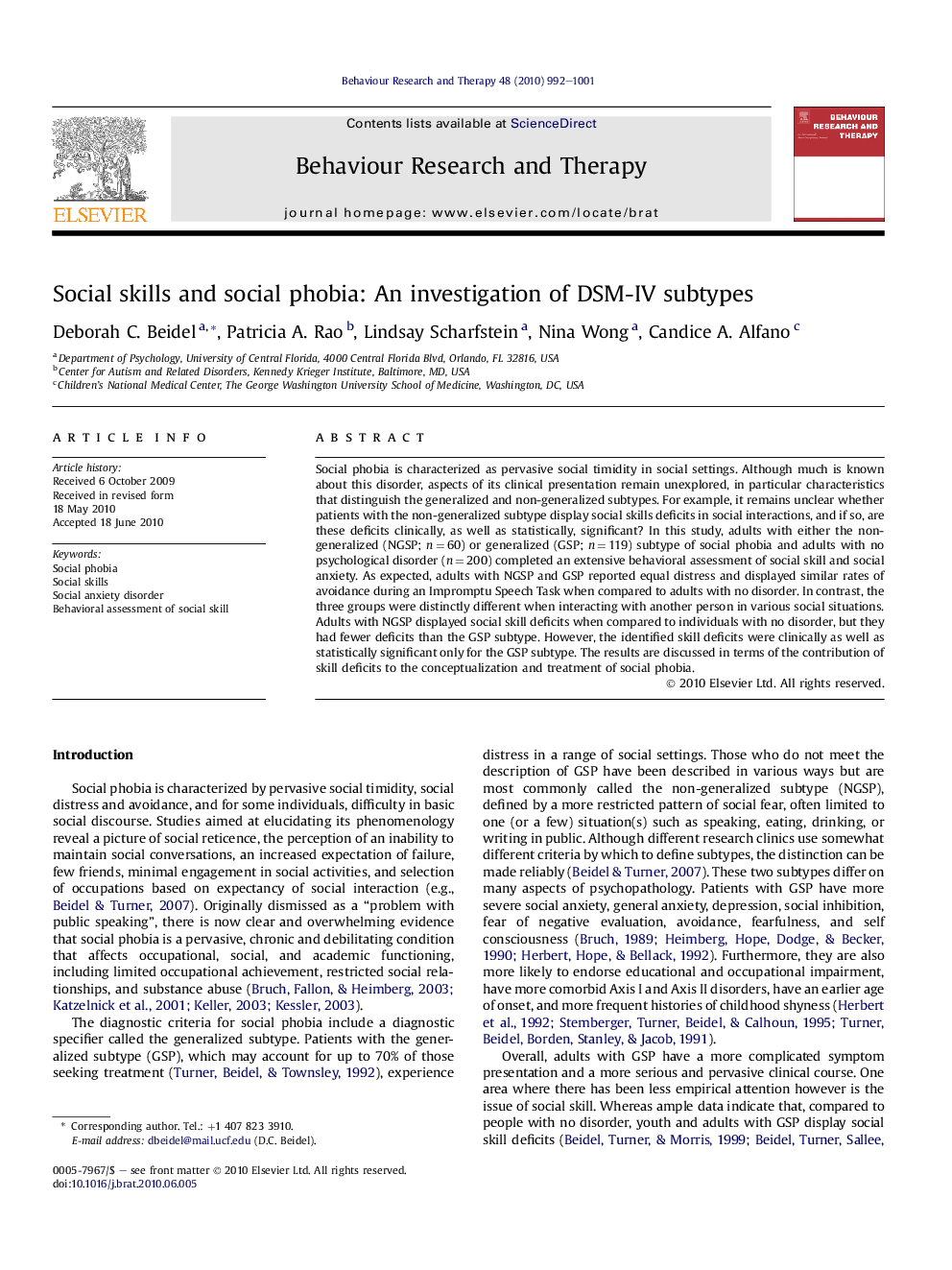| Article ID | Journal | Published Year | Pages | File Type |
|---|---|---|---|---|
| 10444655 | Behaviour Research and Therapy | 2010 | 10 Pages |
Abstract
Social phobia is characterized as pervasive social timidity in social settings. Although much is known about this disorder, aspects of its clinical presentation remain unexplored, in particular characteristics that distinguish the generalized and non-generalized subtypes. For example, it remains unclear whether patients with the non-generalized subtype display social skills deficits in social interactions, and if so, are these deficits clinically, as well as statistically, significant? In this study, adults with either the non-generalized (NGSP; n = 60) or generalized (GSP; n = 119) subtype of social phobia and adults with no psychological disorder (n = 200) completed an extensive behavioral assessment of social skill and social anxiety. As expected, adults with NGSP and GSP reported equal distress and displayed similar rates of avoidance during an Impromptu Speech Task when compared to adults with no disorder. In contrast, the three groups were distinctly different when interacting with another person in various social situations. Adults with NGSP displayed social skill deficits when compared to individuals with no disorder, but they had fewer deficits than the GSP subtype. However, the identified skill deficits were clinically as well as statistically significant only for the GSP subtype. The results are discussed in terms of the contribution of skill deficits to the conceptualization and treatment of social phobia.
Related Topics
Health Sciences
Medicine and Dentistry
Psychiatry and Mental Health
Authors
Deborah C. Beidel, Patricia A. Rao, Lindsay Scharfstein, Nina Wong, Candice A. Alfano,
